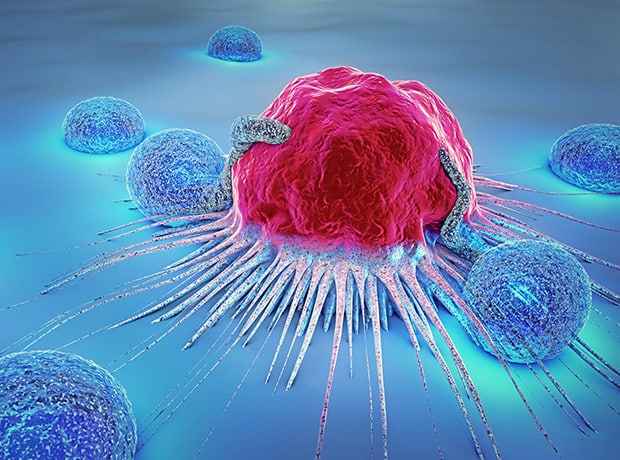British drugmaker and researchers from the UCL Division of Infection & Immunity will collaborate on two projects which will aim to contribute to the development of new cancer treatments.
The new research collaborations will investigate immune checkpoints – key biochemical pathways that regulate the body’s immune responses.
Although immune checkpoints help to keep the body’s immune response at normal levels by not harming healthy cells, they can also block specialist immune cells from attacking and destroying cancer cells.
Over the last decade, the emergence of checkpoint inhibitor drugs have revolutionised cancer treatment and demonstrated benefit in clinical results for patients with solid tumours.
Meanwhile, the two AstraZeneca/UCL projects will focus on increasing understanding of immune checkpoint mechanisms and how to manipulate them.
The ultimate aim of the projects will to be to aid the development of new immunotherapy approaches.
AstraZeneca will provide a number of compounds for the projects, while UCL will use unique preclinical models and an array of molecular and cell biology techniques to study these pathways.
“These collaborations with AstraZeneca will bring together some of the very best minds in immuno-oncology,” said Dr Kathryn Walsh, executive director, office of the Vice-Provost (Enterprise), UCL.
“Working together, experts from both institutions will push the boundaries of our understanding of the role of the body’s immune system. In the future, these insights will play a valuable role in how we will be able to develop new treatments to help patients with solid tumours,” she added.










